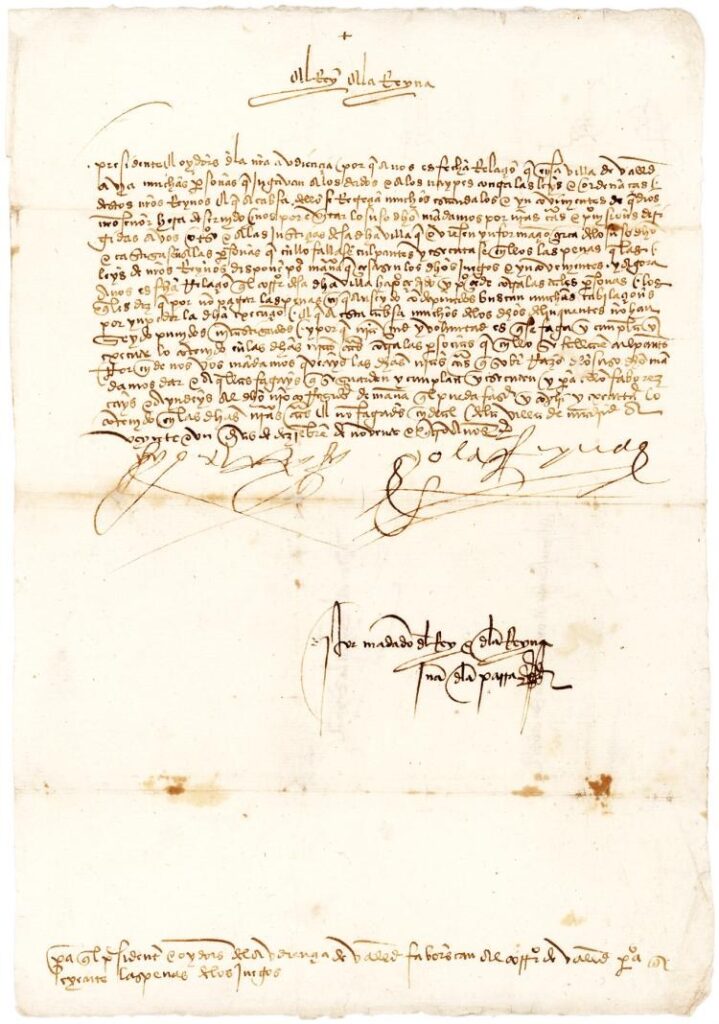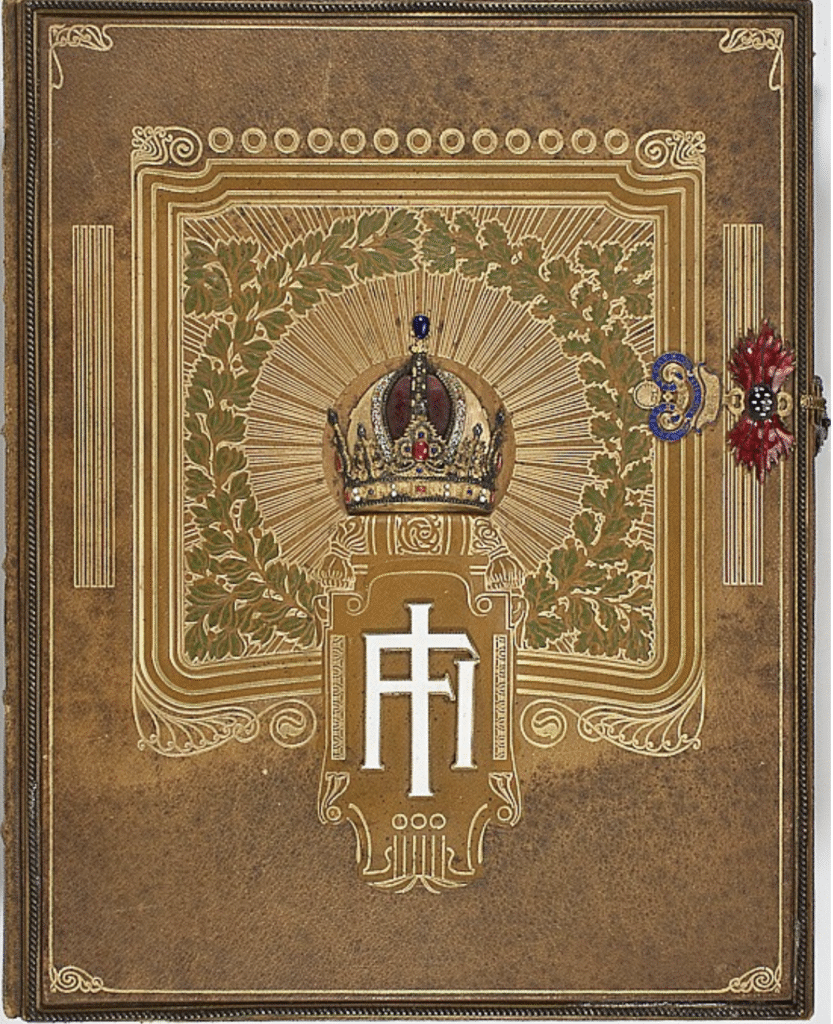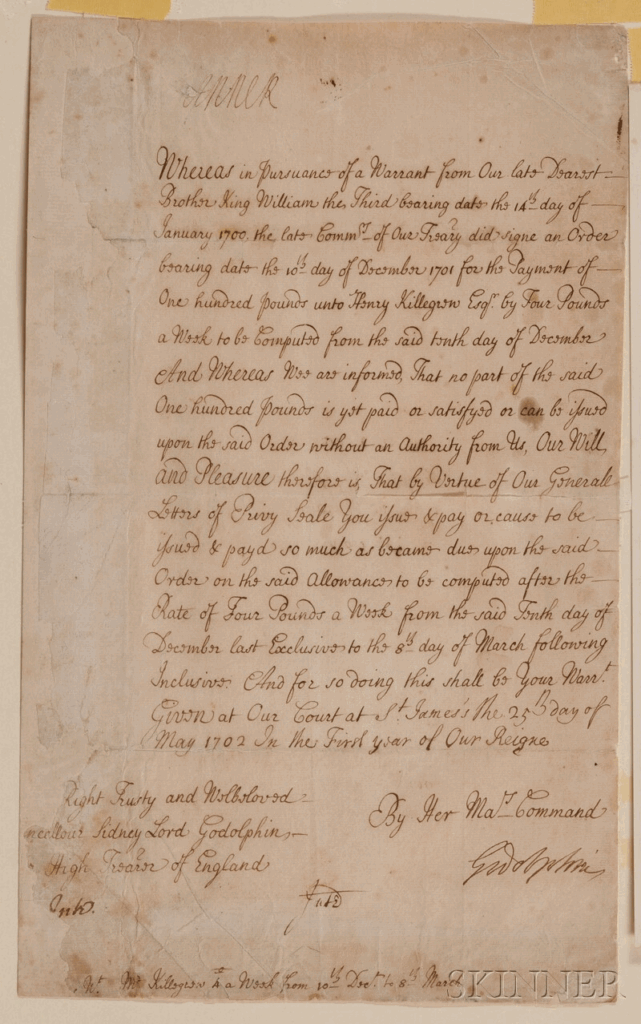TWO YEARS AFTER COLUMBUS DISCOVERS AMERICA, KING FERDINAND AND QUEEN ISABELLA ADMONISH THEIR SUBJECTS AGAINST GAMBLING INCLUDING CARDS AND DICE PLAYING
Description: A Royal Edict Regarding the Illegality of Playing Dice and Cards: “And dare not go contrary to what is ordered”FERDINAND OF ARAGON & ISABELLA OF CASTILE. (1452-1516 & 1451-1504). Catholic king and queen of Aragon, Castile, Sicily, and Naples. DS. (“I, the King” and “I, the Queen”). 1p. Tall 4to. Madrid, December 21, 1494. To the president and members of the court. In Spanish with translation.
The King and the Queen President and judges of our court: Since it had been reported to us that there were many people in that city of Valladolid who were playing dice and cards in contravention of the laws and ordinances of these our kingdoms, and that this fact caused an increase in scandals and inconveniences which displeased our Lord God, we, in order to avoid what is mentioned above ordered through the decrees and provisions we addressed both to you and the justices of the aforementioned city, did command that an inquiry be made about the whole of the above mentioned, punish whomever they found guilty of it and impose on them the penalties that the laws of our kingdom provide, so that the above mentioned games and inconveniences may cease. Now it has been reported to us that the chief magistrate of the above-named city has and is proceeding against such persons, who apparently seek all sorts of subterfuges to elude the payment of the fines for which they are held liable, and prevent their enforcement; and that, as a consequence of it, many of the aforementioned delinquents have not been punished nor prosecuted. Yet, being our desire and will that the contents of our said royal decrees be enforced, complied with and executed against whatever persons might be deemed guilty, we therefore ask you to go through our aforesaid decrees, which we issued on these grounds, and to have them kept, complied with, and executed. To this end, we ask you to oblige and help our aforesaid chief magistrate, so that he may enforce, comply with, and execute the contents of our above mentioned decrees. And dare not go contrary to what is ordered. From the town of Madrid, on the twenty-first day of the month of December in the year ninety four. I, the King [paraph] I, the Queen [paraph] By command of the King and the Queen Juan de la Parra [paraph] So that the president and judges of the Court of Valladolid may oblige and help the chief magistrate of Valladolid to enforce the gaming penalties. [Verso] + From the King and the Queen. To the president and the members of the Court”
With their marriage in 1469, Ferdinand and Isabella began to consolidate their power, and with the implementation of the 1489 Ordinances of Medina they established Valladolid as the permanent seat of the Royal Audencia, the highest court in the Spanish judicial system. They also created the Royal Council or Council of Castile, which appointed municipal judges to enforce their laws at a local level. The establishment of the Council was an attempt by Ferdinand and Isabella to diminish the power of the nobility by taking aim at the Cortes Generales, the body which controlled taxation. The monarchs’ unification of the Castilian judicial system became integral to the Pacification of Castile, making it one of the continent’s first strong nation states. Although Ferdinand was an avid card player and gambler, Isabella introduced legislation against chess, card playing and gambling in 1476, “which had been carried to great excess under the preceding reigns… [under Isabella] the court, which had been little better than a brothel… became the nursery of virtue and generous ambition… She enforced the execution of her own plans, oftentimes even at great personal hazard, with a resolution surpassing that of her husband,” (History of the Reign of Ferdinand and Isabella the Catholic, Prescott). Our document seeks to enforce the ban on gambling which was, apparently, widely flouted, 18 years after first enacted. In addition to the Catholic monarchs, our document is signed by court scribe Juan de la Parra. Docketed on the verso with five sets of initials in the top left corner. An extremely early and rare reference to gambling, dice and playing cards.




